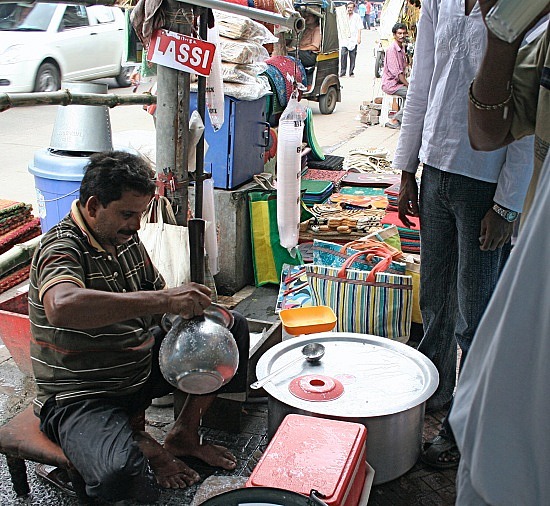Indian farmers won’t say cheese

Inter Press Service
Indian Farmers Won’t Say Cheese
By David Cronin
BRUSSELS, May 3, 2010 (IPS) — India is facing strong pressure to open up its markets to cheese and other dairy produce from Europe, even though the New Delhi government has expressed fears about how small farmers could be forced into deeper poverty as a result.
Because its dairy sector employs 90 million people, India has advocated that milk and cheese be excluded from the scope of the free trade agreement under negotiation with the European Union.
EU officials nonetheless stepped up their efforts to have India’s agricultural markets liberalised during the latest round of talks, which took place in the last week of April. A Brussels source said that moves to open up all agricultural sectors are under discussion. "It has not yet been decided which products will be liberalised and India’s sensitivities will certainly be taken into account as negotiations progress," the source told IPS.
Anti-poverty activists complain, however, that the EU has displayed scant concern for the plight of India’s rural poor until now.
While India’s dairy sector is of critical importance in providing work and income to farmers, particularly those who do not own land, Europe’s cheese- makers have been adamant that protections offered to India’s poor should be dismantled.
In 2007 — the year that talks aimed at reaching an EU-India free trade agreement were launched — the European Dairy Association contended that the taxes levied by the Delhi authorities on imported food were "unrealistically high." But critics of the EU’s trade strategies argue that scrapping such tariffs would leave India’s farmers unable to withstand competition from European imports. Often those imports have been highly subsidised and can be sold at lower prices than domestically produced food.
"The EU is pushing very aggressively to open up some of the key sectors in India that support huge numbers of producers and workers," said Sophie Powell from the fair trade organisation Traidcraft. "For example, the dairy sector is one of the most pro-poor sectors in India as it provides income for millions of rural families, most of whom are landless or marginal farmers."
Both the EU and India have set themselves an objective of removing 90 percent of the tariffs they apply to trade in goods between them in an eventual agreement. Negotiators are seeking to have this accord completed in time for a high-level EU-India meeting in October.
A 2009 study by the Centre for Trade and Development, which monitors economic issues affecting south Asia, found that women would bear the brunt of any moves to expose India’s dairy sector more to outside competition. Women comprise 75 million of the employees in that sector.
Despite being one of the world’s most populous countries, India absorbs less than 0.5 percent of the EU’s total agricultural exports. Europe’s dairy companies have identified the high tariffs as the main obstacle to expanding their commercial ties with India. The country’s burgeoning middle class is also regarded as offering great potential as buyers of the gourmet cheeses more readily available in European shops.
Trade analysts say that EU officials have stepped up their efforts to include dairy within the scope of an agreement with India because of the crisis facing Europe’s milk farmers, who have been badly hurt by a decrease in the prices they are being paid in the past few years.
This crisis prompted the EU to resume paying subsidies to exporters of butter, cheese and skimmed milk powder in January 2009. Such subsidies — widely considered as harmful to farmers in poorer countries, where markets have been flooded by European produce — had been suspended in 2007.
Paul Goodison from the European Research Office, a watchdog on trade relations, noted that the EU has provided 1.6 billion euros (2 billion dollars) in assistance to dairy exporters over the past 10 months. The sum is in addition to the 5 billion euros per year already earmarked to the dairy sector under the Union’s common agricultural policy.
In a bid to compensate for the troubles facing European milk farmers at home, the Union is "very keen to get any market opening" it can abroad, Goodison added. Although the EU’s long-term goal is to sell greater quantities of regional delicacies or value-added produce like yoghurt drinks that would not qualify for export subsidies to India, the immediate concern of its officials is to increase the market share for goods that are subsidised.
"This is blatantly unfair competition," said Goodison. "It is a warning to any developing country. The EU makes its own rules when it is making trade agreements."
Sandeep Chachra, director of ActionAid in India, commented: "Over 80 percent of the Indian peasantry are small and marginal farmers. For their livelihoods and survival, millions from this group depend on the dairy sector to supplement their meagre incomes. This sector cannot be opened up without adequate protection to face the EU’s highly subsidised and protected dairy sector. That would be a highly uneven competition on unequal terms, disruptive to the lives and livelihoods of small and marginal Indian farmers."





